Fishing is very popular in Australia, with over 5 million people fishing yearly. But if you’re new to fishing and want to try out beach fishing, it can be a bit intimidating at first.
Although some people might see beach fishing as a casual pastime, there’s a lot of skill involved in catching fish from the beach.
It takes practice and patience to perfect your technique and learn how to read the water.
Want to know where the best beaches are? Do you want to catch the biggest fish? Even if fishing is new for you, these beach fishing tips will give you all the knowledge to enjoy a successful day of beach fishing.
Beach Fishing Tips For Beginners Tip #1
Prepare Yourself
The first thing you need to do is prepare yourself. If you are going on an overnight trip, ensure you take enough warm clothes.
You should also bring plenty of water since it gets hot in the summer, and dehydration can be dangerous.
The sun can also be very harsh at times. Make sure that you have sunscreen on before going out onto the beach so that your skin doesn’t get damaged by the sun’s harmful rays.
If possible, bring an umbrella with you so that it can provide shade from the sun and protect from rain if needed!
Check the forecast before setting off on your trip to ensure that your clothes are appropriate for the weather conditions.
It would be best if you also took plenty of food with you. It can be a good idea to pack sandwiches, crisps, and other snacks that don’t need refrigerating. Although simple, these beach fishing tips are often overlooked.
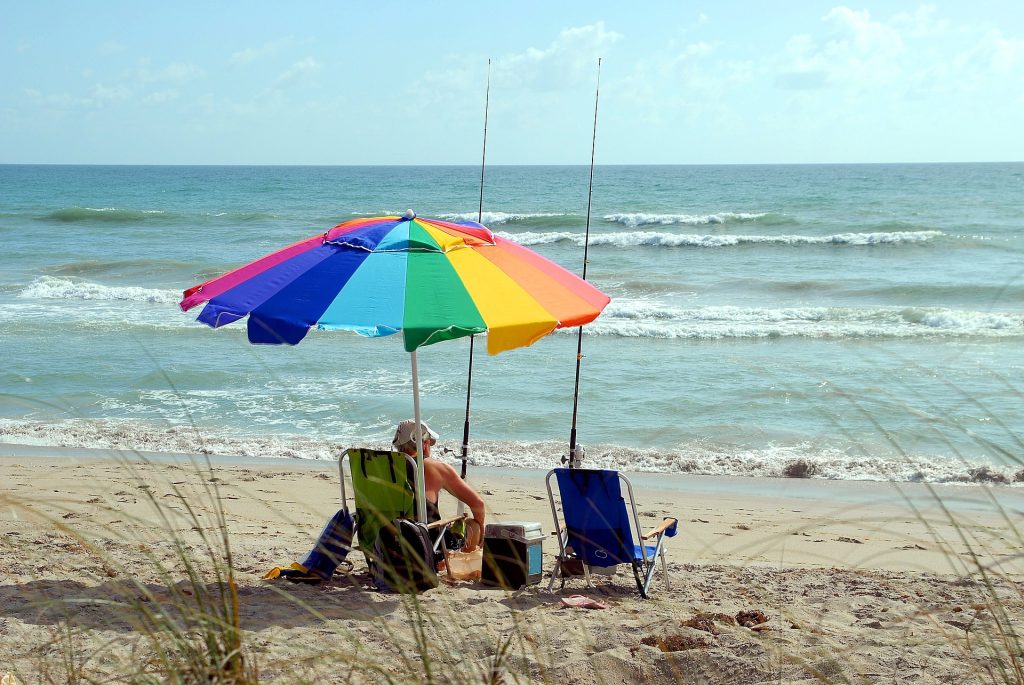
Beach Fishing Tips For Beginners Tip #2
Ready and Test Your Gear.
Before heading out to the beach, take some time to ensure your fishing gear is in good working order.
Inspect your hooks and lures to ensure they’re not bent or rusted, check the line for frays or weak spots and ensure the reel works smoothly by winding it up until it stops turning freely.
If you’re using live bait, check that the bait bucket is closed firmly so no water gets into it, and make sure there are no holes in the netting where small fish could escape.
You’ll also want to test out how long the line your reel will let out and how fast you can retrieve it from the water using different techniques.
Try reeling in slowly so that you don’t get tangled up in the line, then experiment with reeling quickly to see how far each movement takes your lure.
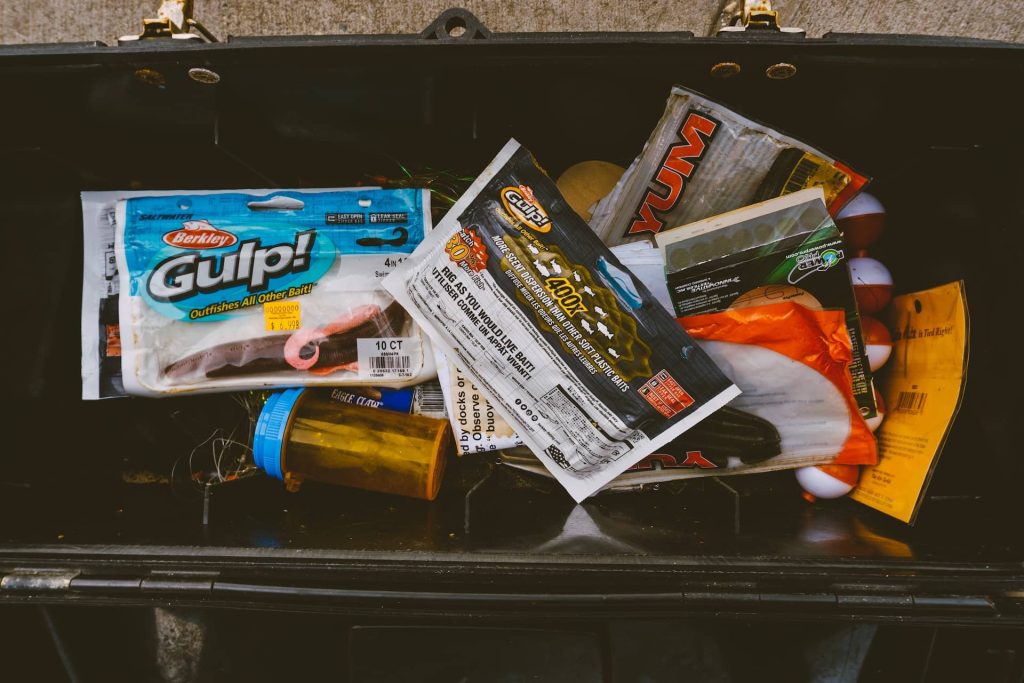
Beach Fishing Tips For Beginners Tip #3
Location Is Everything
You need to find the right spot. Some beaches have a lot of people on them, but others are more isolated. Finding a beach with fewer people around is best if you’re going for solitude and quiet.
You’ll also want to look for someplace with good access to water and an easy path from dry land down to the water’s edge.
Location matters because it will affect how many fish you catch.
It might seem obvious, but finding a beach with good fishing spots is essential. You don’t want to waste your time trying to catch fish from an area where they don’t live.
The best way to ensure you’re picking an ideal spot is to go out there and see what’s available for you!
How do I find a good fishing spot on the beach?
The best spots are usually found where there is some sort of structure in the water. These could be sandbars, troughs, seams, covers, or points.
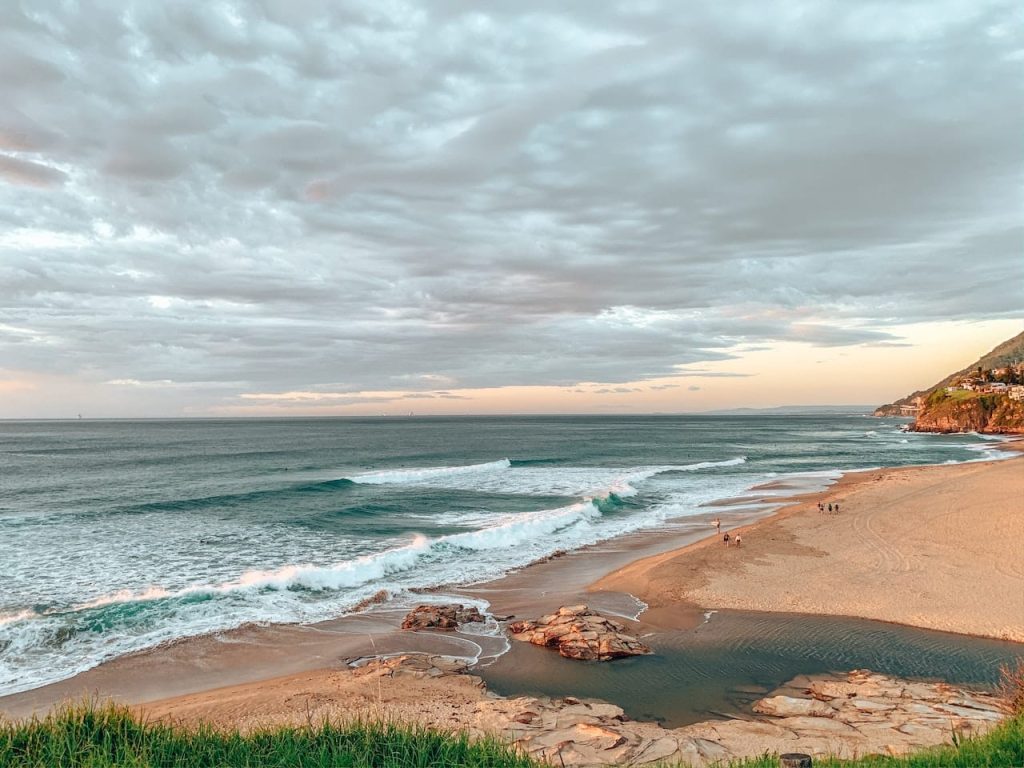
Beach Fishing Tips For Beginners Tip #4
Sandbars
Sandbars are areas of sand exposed by low tide. They can vary from a few metres wide to hundreds of metres wide.
Sandbars are an excellent fishing spot. They are usually found in shallow waters just off the beach and have a long history of being used by fishermen.
Fishing on sandbars can be great fun, but it can also be very challenging. The biggest problem with fishing on sandbars is that they can be hard to find, especially if you don’t know where they are.
You’ll need to observe your tide charts when fishing off a sandbar because they can shift daily.
To get an idea of where the best spots are, talk to locals or surfers who might be able to tell you about patterns, such as where the waves break and how far out they go before receding.
You can also use Google Earth or Google Maps to see where there are sandy areas around your favourite fishing spots.

Beach Fishing Tips For Beginners Tip #5
Troughs
Troughs are often found between the shoreline and the sandbars. This is great if you are fishing on a beach with troughs because they can make great spots for fishing.
Troughs are areas of sand that have been eroded away by water over time, leaving deeper areas between them.
These deeper areas can be used as fishing holes and shelter from waves and winds.
The deeper areas also allow you to drop your bait further down than usual, enabling you to catch larger fish such as snapper or whiting if they are present in the area (which they usually are).
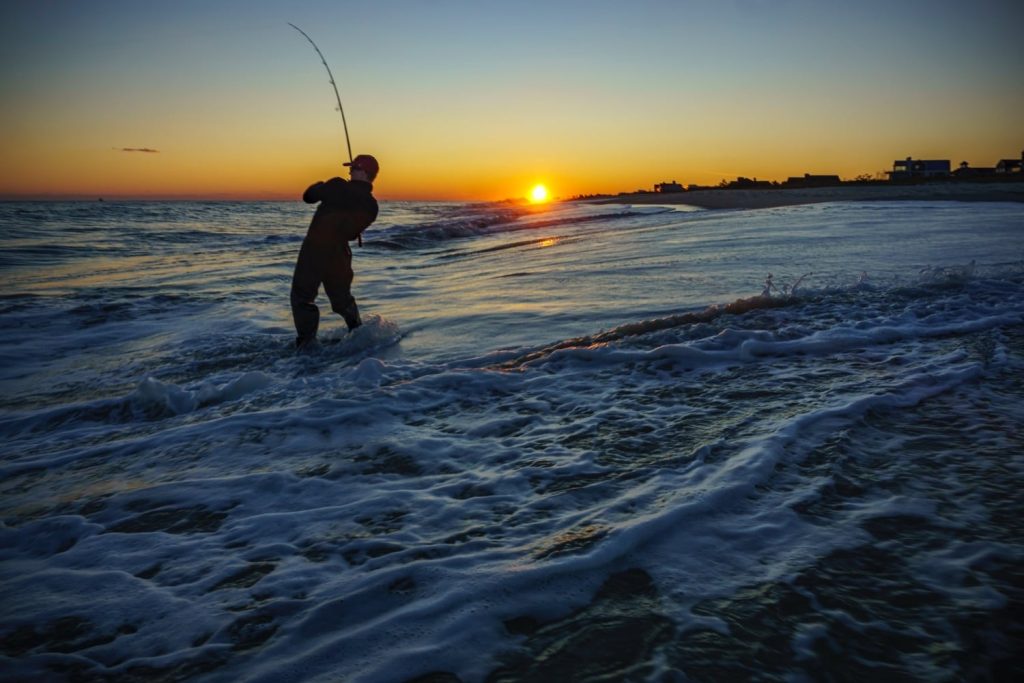
Beach Fishing Tips For Beginners Tip #6
Seams, Covers & Points
The best way to find a good fishing spot on the beach is to look for an area with a lot of seagrass or seaweed. There are two reasons for this.
Seagrass or seaweed provides cover for small fish, meaning they will have plenty of food. It also makes it easier for you to see the fish as they move around in the water.
The second thing you should look for is a seam or channel in the sand. Seams and channels lead from deeper water into shallow water (trough), which is where you want to be fishing from.
This is because fish follow these seams when they are looking for food.
They will swim through these channels until they reach an area with enough food to eat, then stop moving along them and stay there until they return to deeper water. These beach fishing tips on location are vital when it comes to having success with your targeted species.
Beach Fishing Tips For Beginners Tip #7
Get Your Baits and Lures in Order
When planning your trip, the first thing to consider is what bait or lure you will use.
Bait can be anything from a piece of bread to a small fish, while lures are usually made from metal and have hooks designed to attract the fish’s attention.
The best bait for beach fishing is the type of food that you know the fish like to eat. For example, if fishing for bass, try using worms or minnows as your bait.
If you are after flounder, then shrimp is a good choice.
You will also need to consider how much weight you need for the water depth where you will fish, as well as whether or not you will be using any other specialised equipment, such as reels and rods.
You can use a simple rod and reel, but this may not be the best option when trying to catch larger fish.
If you want to catch bigger fish, you should use heavier tackle such as wire leaders and braided line, which will enable you to fight larger fish without losing them. These beach fishing tips have been created to give you an overview of all the aspects. Please check out our other blogs for detailed information on fishing rods and reels.
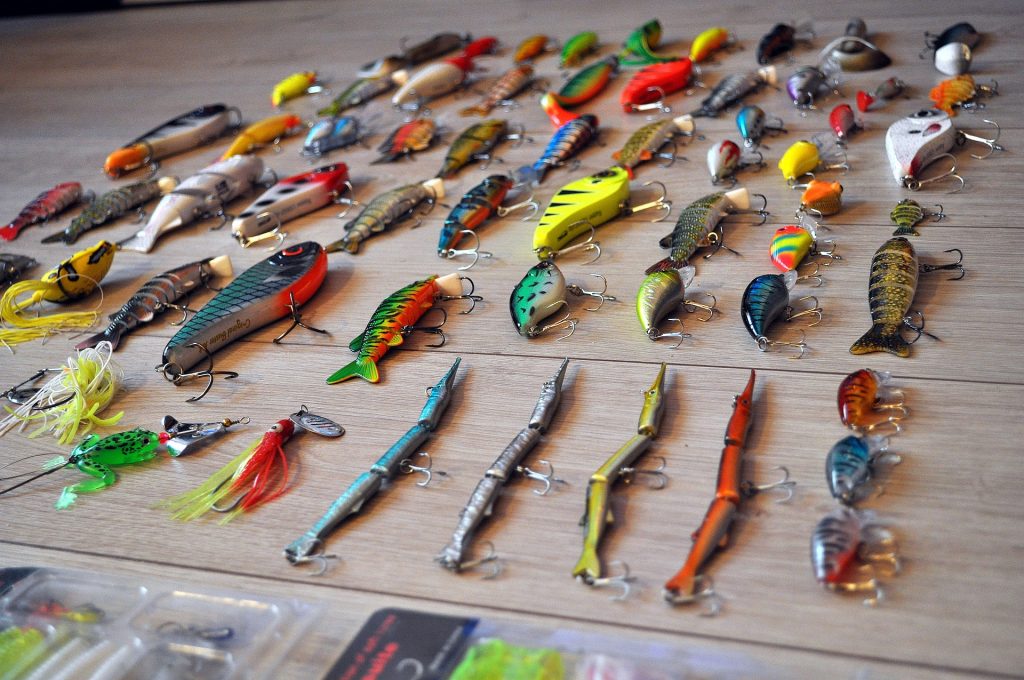
Beach Fishing Tips For Beginners Tip #8
Read the Weather Forecast and Choose the Time Wisely
Beach fishing has its own set of weather rules that you’ll need to follow if you want to catch anything.
When planning your trip, make sure you check the forecast before heading out — if it’s going to rain or be cloudy all day long, then fishing isn’t really going to be worth it!
Remember that wind plays a significant role in how successful your trip will be; if there’s too much wind out on the water, then there probably won’t be any fish swimming around either!
The Bureau of Meteorology provides an excellent free service in Australia, which you can access at www.bom.gov.au.
It is updated daily and gives you all the information you need about your area’s weather.
The forecast will tell you about the wind speed and direction, pressure and humidity, and how likely rain will fall during the day.
This can be very useful when deciding what weather conditions are best for beach fishing.
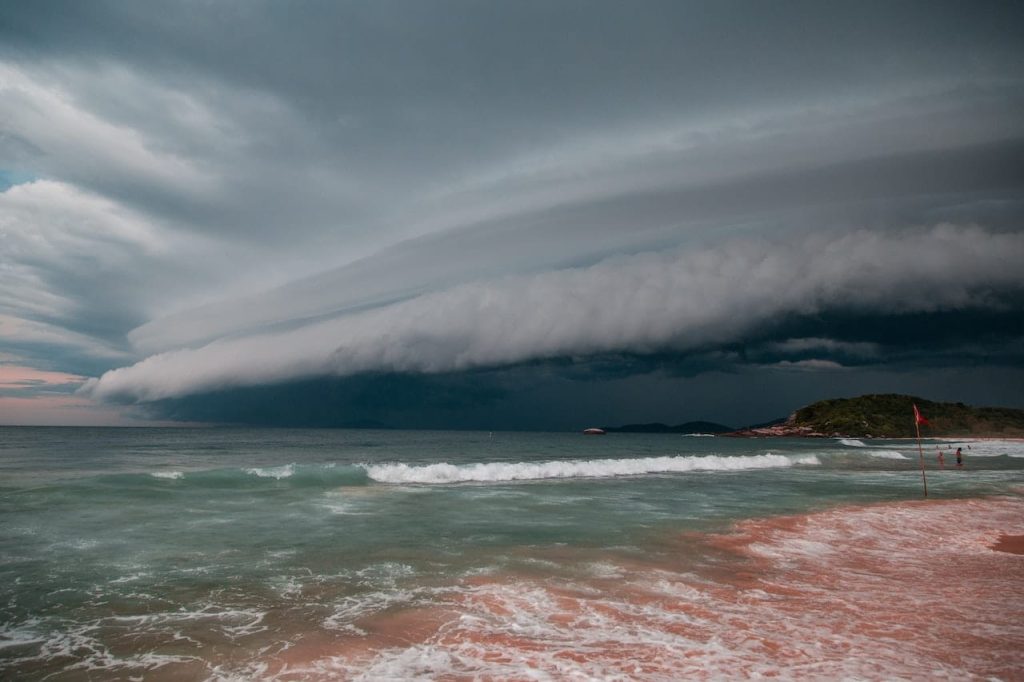
Beach Fishing Tips For Beginners Tip #9
Fishing Rod for Beach Fishing for Beginners – What to Use?
One, if not the most crucial thing you need before you can go fishing is a rod and reel.
You can buy these as a set or individually, but if you’re starting out, it’s best to buy one with all the parts together. These are often called combo kits or “kits.”
Generally speaking, these will have everything you need: an aluminium or graphite rod (depending on your preference), line, lure, bait holder, and sometimes even a reel seat adapter, so you can use your own reel if you prefer.
The kit will also come with spare spools so that when one runs out in the middle of nowhere, there’s no need to worry – just put another one on!
The best beach fishing rod allows you to cast a long distance without breaking the bank.
You will also want something lightweight and easy to maneuver, as you’ll be working around rocks, sand, and other obstacles.
A lighter-weight rod will help you keep your line above water, making it easier to cast.
The ideal length depends on the type of fish you’re targeting, but most people agree that a 5-foot-6-inch rod works well for most people.
If you’re starting out, it’s also important to consider how easy it is to reel your catch — especially if it’s a large one!
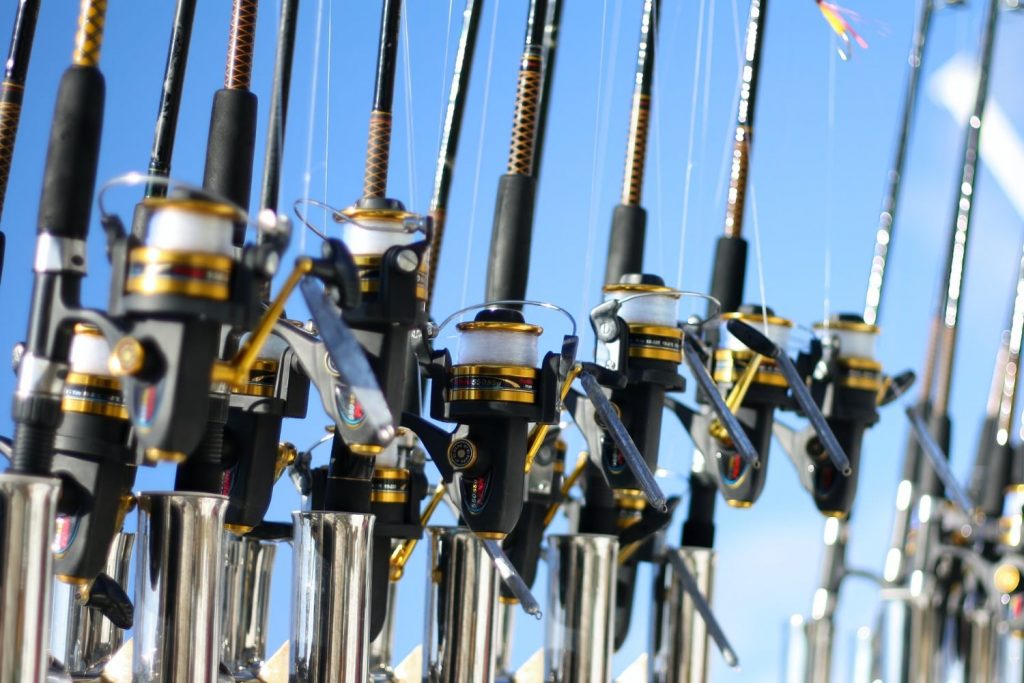
A good quality reel should make all the difference when reeling in your catch without getting tired or having any difficulties.
There are many different types of reels on the market today, but when it comes down to it, there are only two types worth considering for beach fishing: fixed spool reels and baitrunners.
Fixed spool reels have a fixed spool meaning that no centrifugal force is required when casting, so they are perfect for beginners with limited casting skills.
Baitrunners have an adjustable drag system that allows you to adjust how much pressure is put on your line when casting, so they are great if you like to cast long distances and beginners.
The reel’s quality is also something to consider when buying a new one.
Cheaper reels will often have plastic parts that can break easily, so if you go for one of these, make sure that it comes with a warranty so if anything breaks, you can get it repaired or replaced.
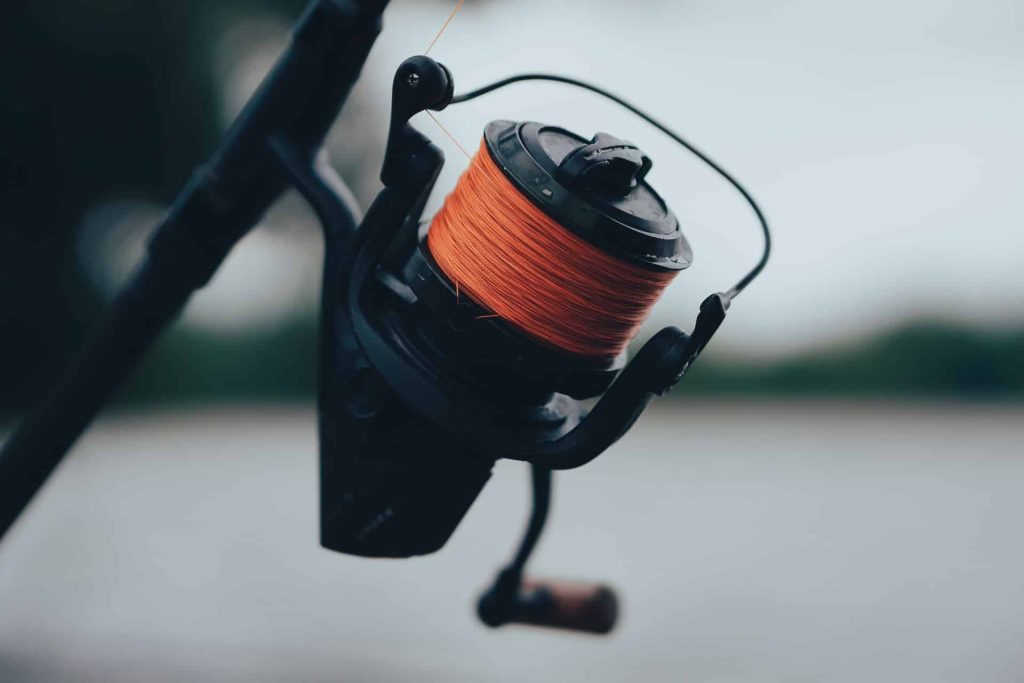
Beach Fishing Tips For Beginners Tip #10
Be Mindful of The Tide Times and Tidal Ranges
An essential thing you’ll need to do is understand how tides work in your area.
Tides are caused by the gravitational pull between the moon and the sun, which creates water movement across our planet’s surface.
Tides are influenced by many factors, including wind speed and direction, atmospheric pressure, and the shape of local coastlines.
Because tides can vary significantly from place to place, it’s essential to check online tide charts before heading out onto the sand and understand how they affect your chosen beach at any time of year.
If you’re unsure of the tide cycle, plenty of online resources can help.
The Bureau of Meteorology website provides easy-to-understand information on tidal activity in coastal regions around Australia. You can find the tide predictions here.
Once you have this information, you can plan your trip accordingly so that you don’t waste any time waiting around for the tide to come in just so that you can get out there and start catching fish!
Why is this important?
If you get caught on dry land when the tide starts coming in, you could be stuck there until it returns again — not a good situation!
This will also help you understand when fish will most likely move around, making catching them easier.
There are also certain types of fish that only swim around during certain parts of the tide cycle.
For example, some species prefer shallow waters, while others prefer deeper waters. Therefore knowing when they’re most likely to be there can help you improve your chances of catching them. As part of these beach fishing tips, we’ve included a screenshot of a tide prediction below:
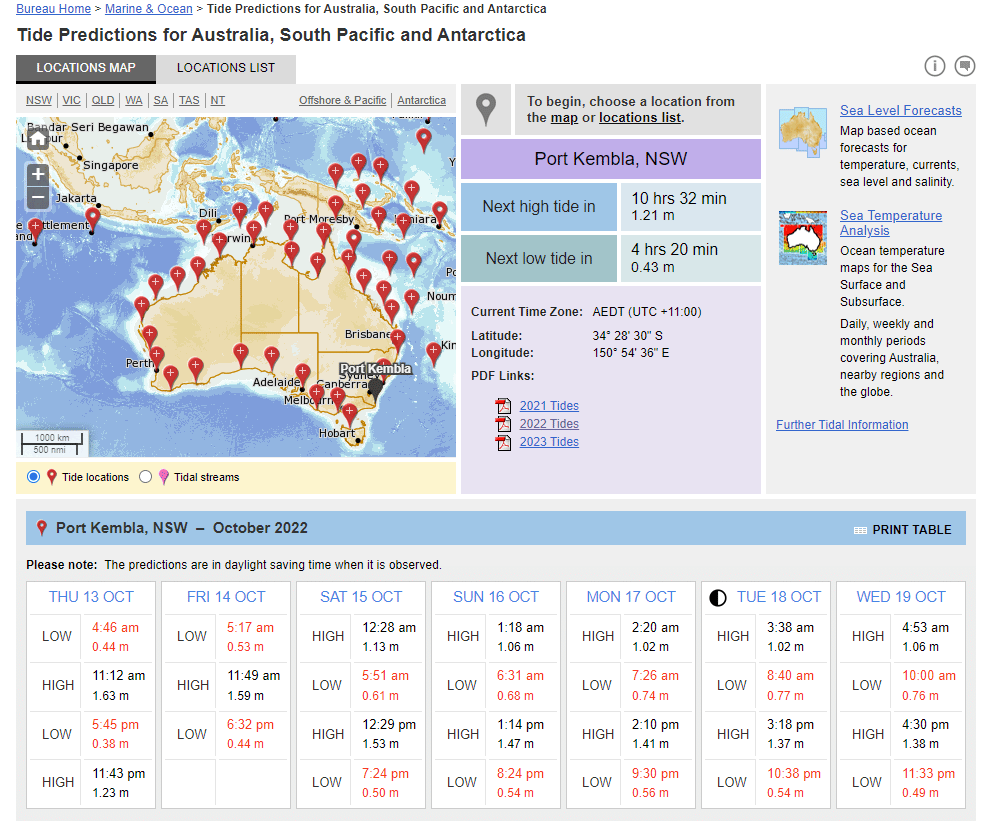
Beach Fishing Tips For Beginners Tip #11
Always Put Safety First
The ocean can be dangerous and unpredictable, so always wear a life jacket on the water.
If you’re fishing from rocks or jetties, wear a helmet and sturdy footwear to protect yourself from falling. Never leave your equipment unattended, especially when children are around.
If you’re in an area with strong currents, be aware of your surroundings, and don’t venture too far away from the shore. If you get swept up by a current, swim parallel to it until you reach safety.
Have an emergency plan and know how to react if something goes wrong. Have a map of where you will be fishing and learn how to navigate back to shore in an emergency.
Always tell someone where you are going and what time you expect to return so they can worry less about you if something happens while you’re gone. From all the beach fishing tips that you may forget, it’s essential that you remember this one.
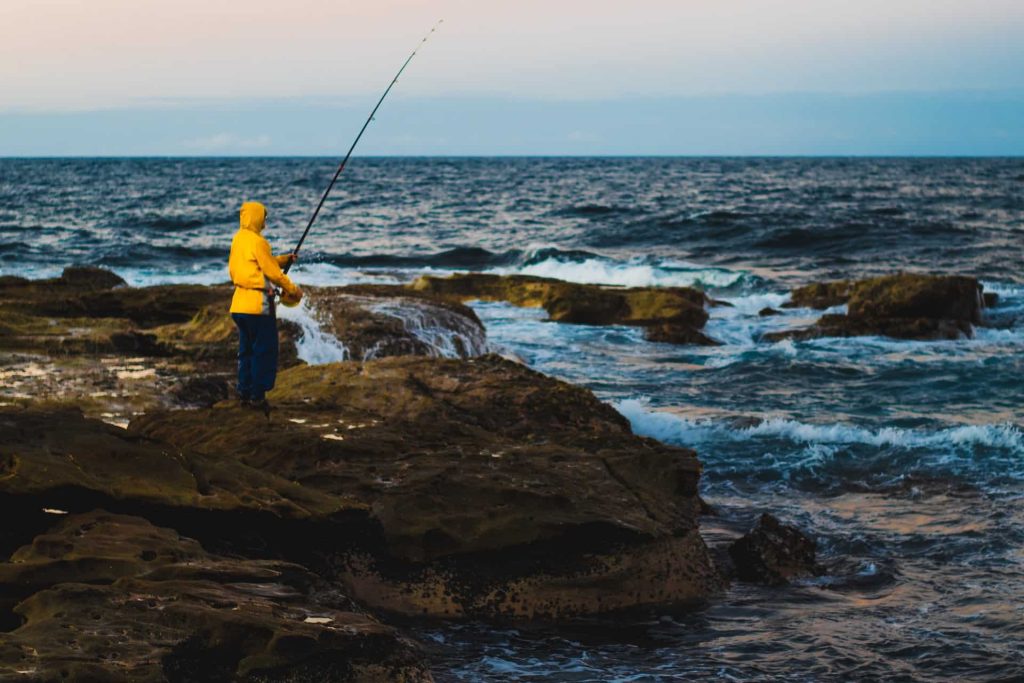
Beach Fishing Tips Conclusion
Beach Fishing Can Be a Great Way to Spend Time with Friends and Family
If you are new to the sport, beach fishing can be a great way to spend time with friends and family. It is relatively easy, cheap to get into, and requires no special equipment or experience.
Beach fishing is not complicated – it can be easy and fun. Make sure you know what you’re doing. If you follow these beach fishing tips and stick to the basics, you’ll never struggle again.
Remember to practice safe beach fishing at all times, and always ask an expert if needed. If you’ve enjoyed these beach fishing tips, please check out our other blogs for more.
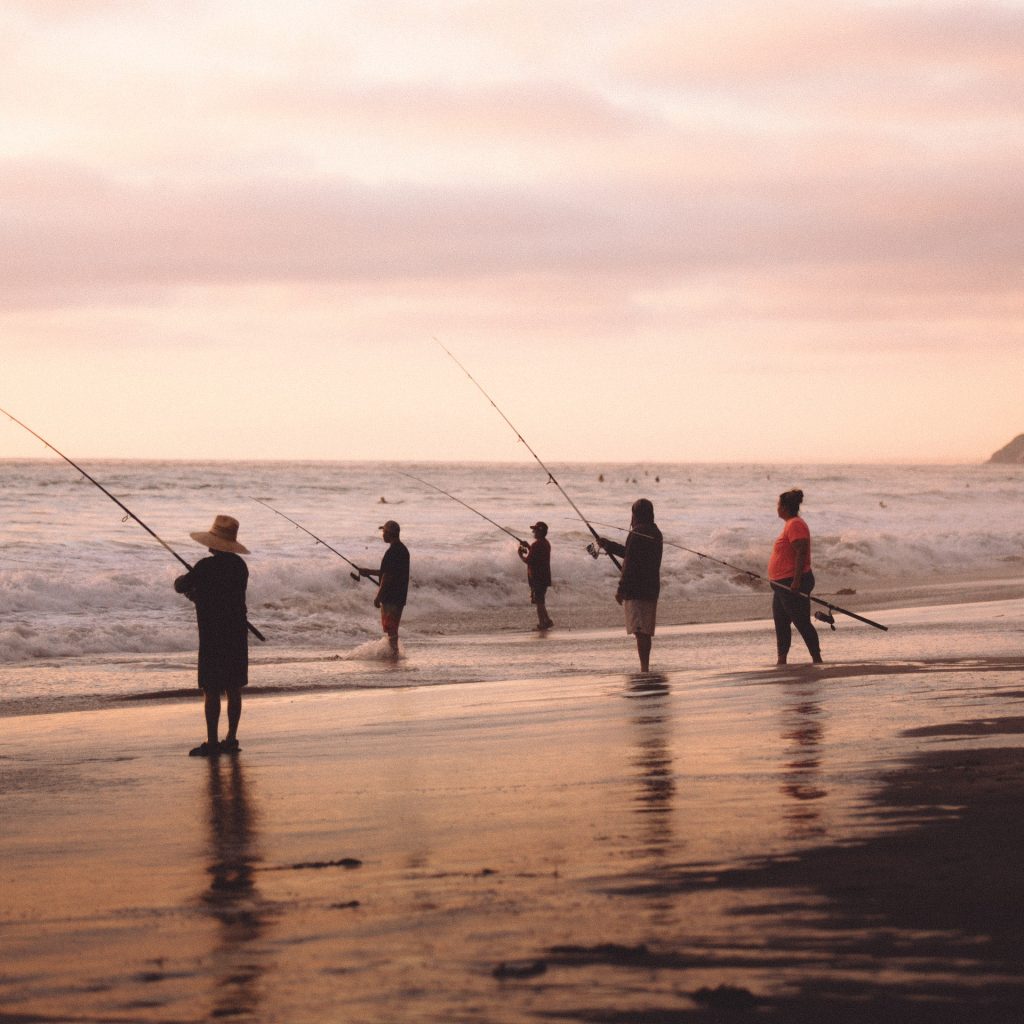
You Might Also Like:
If you enjoyed reading this blog post, you might also be interested in:

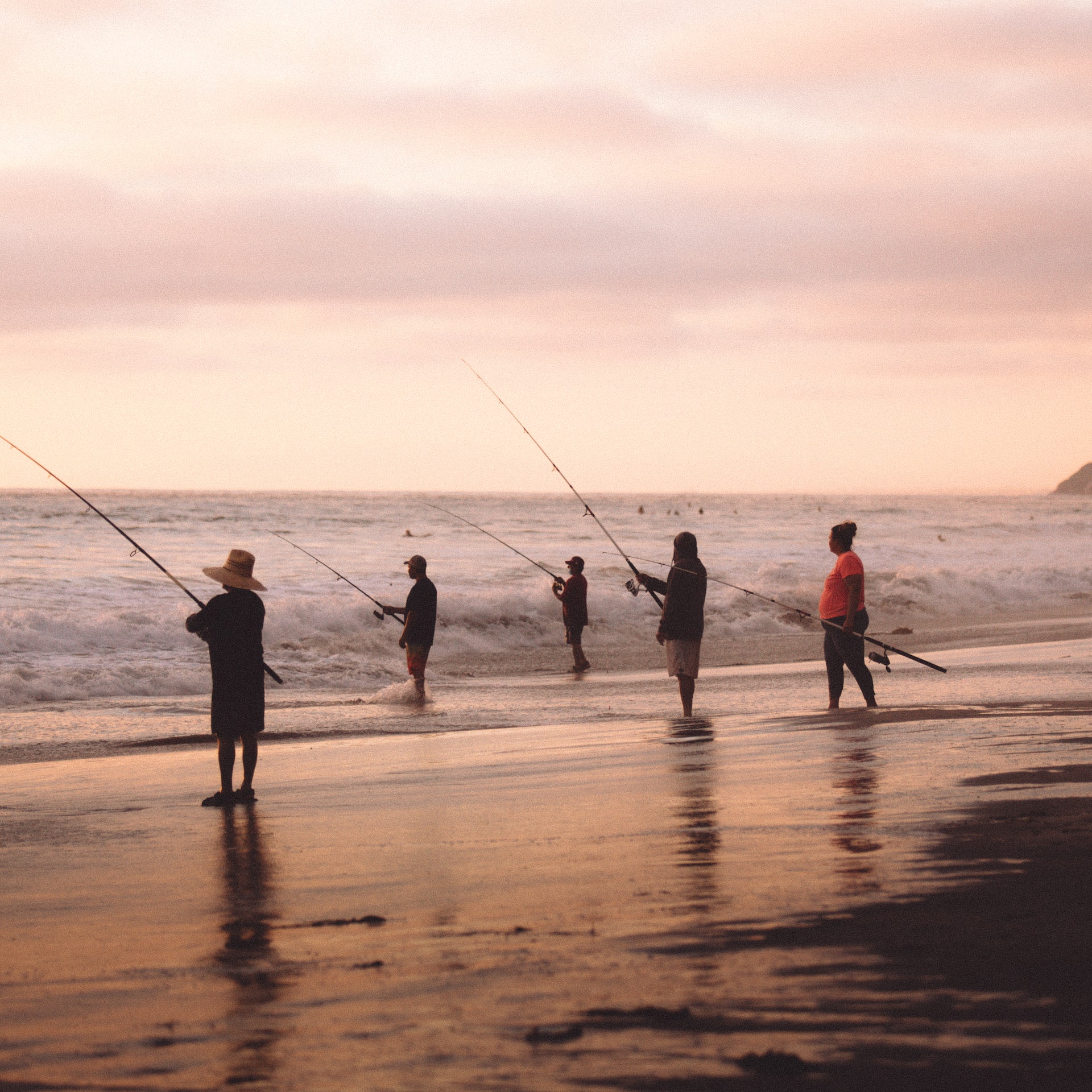
Recent Comments